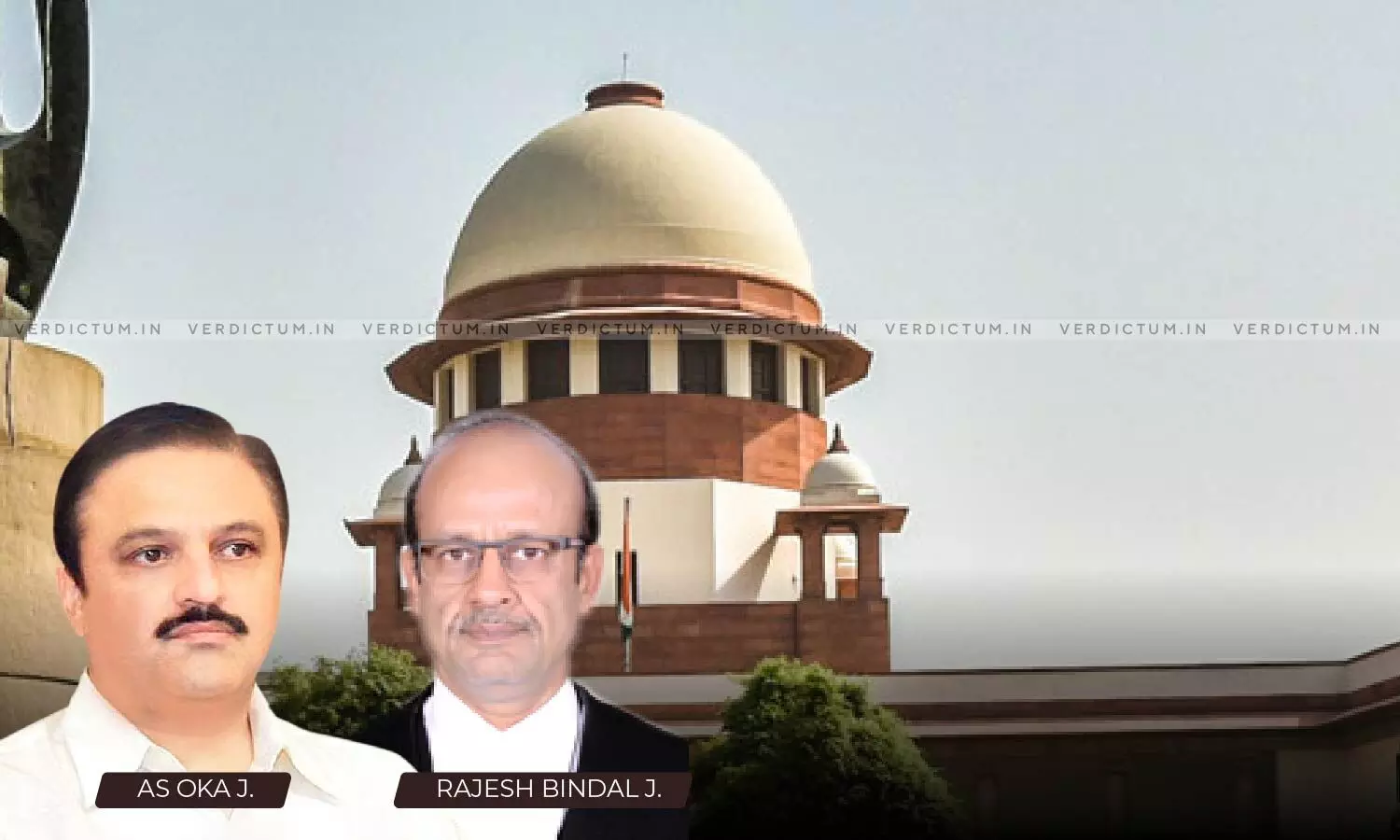
Clause 17(7)(iii) Of Certified Standing Orders Does Not Entitle Employee To Seek Continuation After 58 Years Of Age As Matter Of Right- SC
 |
|The Supreme Court observed that clause 17(7)(iii) of the Certified Standing Orders (the Standing Orders) under the Industrial Employment (Standing Orders) Act, 1946 does not entitle any employee to seek continuation after completion of 58 years of age as a matter of right. However, discretionary power has been conferred to continue an employee who had attained 58 years of age, till completion of the age of 60 years provided he or she was medically fit.
The Bench of Justice Abhay S. Oka and Justice Rajesh Bindal observed that “Therefore, we hold that clause 17(7)(iii) of the Standing Orders only enables the appellant – company to continue any employee in service till he or she attains the age of 60 years subject to medical fitness at the end of each year. We also make it clear that the aforesaid clause does not confer any right on the employees to seek extension till the completion of 60 years.”
Advocate Gautam Narayan appeared for the appellant and Advocate E. C. Vidya Sagar appeared for the respondent.
The case at hand dealt with the issue concerning the interpretation of clause 17(7)(iii) of the Certified Standing Orders (the Standing Orders) under the Industrial Employment (Standing Orders) Act, 1946.
The appellant – company was a Public Sector Undertaking (PSU) of the Government of India. In the year 1998, by a circular, an amendment was made to Rule 35 of the ITI Conduct, Discipline and Appeal Rules, 1975 (the Rules) which provided that an employee completing the age of 58 years, would continue in service till the completion of the age of 60 years, subject to medical fitness at the end of each year.
The appellant-company had reduced the age of retirement to 58 years to cut down of manpower cost. Which was challenged by the respondents before the Division Bench of the Karnataka High Court. The High Court in the impugned judgment held that the decision of the appellant to roll back the age of retirement from 60 to 58 years could not be faulted.
The Court interpreted clause (7) of clause 17 of the Standing Orders and noted that first part of subclause (7) laid down that the age of superannuation should be 58 years. However, it gave an option to the appellant to retire an employee after he or she had attained the age of 55 years on three months’ notice without giving any reasons. It also gave an option to employees to take voluntary retirement on completion of the age of 55 years.
Further it noted that the word ‘may’ had been used in sub-clause (7)(iii) of clause 17 and being an enabling provision, it enabled the appellant to continue an employee in service who has attained the age of 58 years, up to the age of 60 years, provided he or she was medically fit.
Subsequently, the Apex Court expressed that sub-clause (7)(iii) of clause 17 was an enabling provision, it enabled the appellant to continue an employee in service who has attained the age of 58 years, up to the age of 60 years, provided he or she was medically fit.“This clause does not entitle any employee to seek continuation after completion of 58 years of age as a matter of right. The aforesaid clause does not create any right in any of the employees to seek their continuation after 58 years.”
Accordingly, the appeal was partly allowed.
Cause Title- Chairman-cum-M.D. ITI Limited v. K. Muniswamy & Ors
Click here to read/download the Judgment